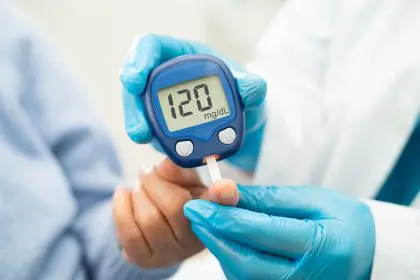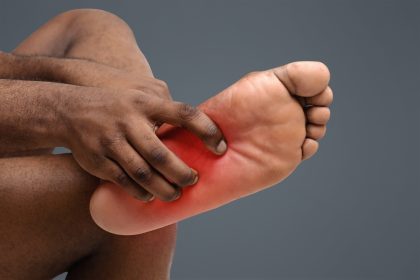Your stomach has essentially gone on strike, and your diabetes is the reason why. Gastroparesis, which literally means stomach paralysis, is one of the most frustrating and dangerous complications of diabetes that many people have never heard of until it starts destroying their quality of life.
When diabetes damages the nerves that control your stomach muscles, food sits in your stomach for hours or even days instead of moving through your digestive system normally. This isn’t just uncomfortable, it creates a cascade of serious health problems that can make managing diabetes nearly impossible and lead to life-threatening emergencies.
Blood sugar control becomes a nightmare
Gastroparesis turns blood sugar management into a guessing game where all the rules you learned about diabetes care stop working. When food sits in your stomach unpredictably, your blood sugar can spike hours after eating or plummet when you least expect it.
You might take insulin for a meal and then have your blood sugar drop dangerously low because the food hasn’t actually been absorbed yet. Then, hours later, when the food finally moves through your system, your blood sugar skyrockets because the insulin has already been used up.
This unpredictable pattern makes it extremely difficult to maintain stable blood sugar levels, which can accelerate other diabetes complications and increase the risk of both severe hypoglycemia and diabetic ketoacidosis.
Severe malnutrition develops despite eating
When your stomach can’t empty properly, you’re not actually absorbing the nutrients from the food you eat. This can lead to serious malnutrition even if you’re consuming what should be adequate calories and nutrients.
Protein deficiency becomes particularly problematic because proteins require more stomach acid and digestive activity to break down properly. Many people with gastroparesis lose significant weight and muscle mass, becoming frail and weak despite their best efforts to maintain nutrition.
Essential vitamins and minerals also become poorly absorbed, leading to deficiencies that can affect everything from bone health to immune function.
Dangerous bacterial overgrowth takes over
When food sits in your stomach for extended periods, it creates the perfect environment for harmful bacteria to multiply. This bacterial overgrowth can lead to serious infections and further damage to your digestive system.
The bacteria produce toxins that can make you feel incredibly sick with nausea, vomiting, and abdominal pain. These infections can also interfere with medication absorption, making it even harder to manage your diabetes and other health conditions.
Frequent hospitalizations become unavoidable
Gastroparesis often leads to cycles of severe symptoms that require emergency medical care. Persistent vomiting can lead to dangerous dehydration and electrolyte imbalances that require IV fluids and monitoring.
When you can’t keep food or medications down, blood sugar control becomes impossible, potentially leading to diabetic emergencies that require hospital treatment. Many people with severe gastroparesis find themselves in the emergency room multiple times per year.
Food becomes the enemy instead of fuel
The unpredictable nature of gastroparesis symptoms can create a fear of eating that leads to disordered eating patterns. People learn to associate food with pain, nausea, and blood sugar chaos, so they start avoiding meals or restricting their diet severely.
This fear of eating can become so severe that it leads to social isolation, as meals with family and friends become sources of anxiety rather than enjoyment. The psychological impact of not being able to eat normally affects mental health and overall quality of life significantly.
Medication absorption becomes unreliable
When your stomach isn’t working properly, oral medications including diabetes medications may not be absorbed effectively. This means your prescribed treatments might not be working as intended, making all your health conditions harder to manage.
Some medications may sit in your stomach and then be absorbed all at once when your stomach finally empties, creating dangerous spikes in medication levels in your bloodstream.
Managing the gastroparesis challenge
Gastroparesis management requires a completely different approach to diabetes care. This often involves eating smaller, more frequent meals with foods that are easier to digest, adjusting medication timing and types, and sometimes requiring feeding tubes or other medical interventions.
The key is working with health care providers who understand the complex relationship between gastroparesis and diabetes to develop individualized treatment plans that address both conditions simultaneously.
Early recognition and treatment of gastroparesis can prevent some of the most serious complications and help maintain better quality of life for people managing this challenging condition.














